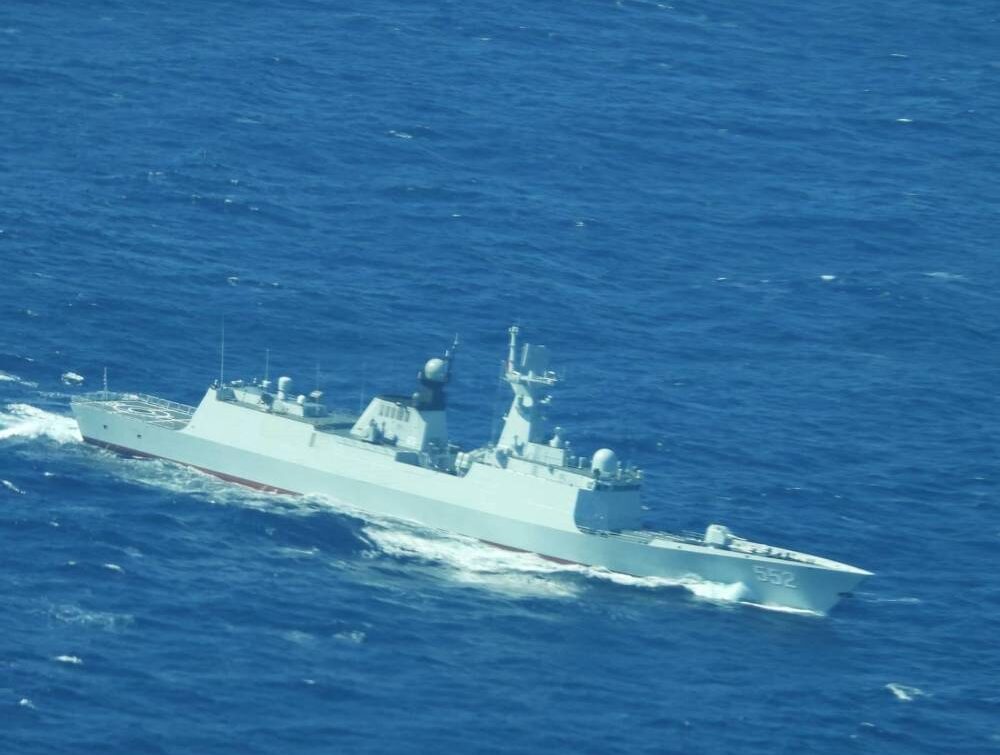BFAR plane tells Chinese Navy: ‘Review your chart!’

Seen from a 12-seater patrol airplane of the Bureau of Fisheries and Aquatic Resources (BFAR), the glistening turquoise waters around Panatag (Scarborough) Shoal in the West Philippine Sea looked invitingly peaceful.
That was until a voice from a Chinese navy ship with bow No. 500 crackled on the radio, telling us we were transiting Chinese “territorial airspace” and must therefore “leave immediately [to] avoid misunderstanding.”
The radio challenge was repeated about 40 more times throughout the three-hour BFAR flight.
But to every order for them to change course, the two Filipino pilots responded with the same persistence and deliberation.
The plane, they insisted, was conducting “a lawful maritime patrol” within the 370-kilometer (200-nautical-mile) exclusive economic zone (EEZ) of the Philippines and therefore should go unimpeded under international law.
This standard reply came with an added pushback against the Chinese: “You are way beyond the 200-nautical-mile EEZ of your country. Please review your chart!”
Ramming, water blasts
The Inquirer was on the flight along with BFAR and Philippine Coast Guard (PCG) personnel on Dec. 19, two weeks after the China Coast Guard (CCG) rammed and trained its water cannon on a Filipino civilian vessel, a patrol boat also of BFAR, near the shoal also known as Bajo de Masinloc.
It was the latest on what is now a long list of incidents involving the CCG in this part of the West Philippine Sea. The harassed BFAR boat was then on a mission to resupply Filipino fishermen near Panatag, which has been under Chinese control for the last 12 years.
The shoal lies 222.24 km (120 nautical miles) from the mainland west of Luzon, well within the Philippine EEZ. Called Huangyan Dao by China, it is nearly 926 km (500 nautical miles) from the nearest major Chinese landmass of Hainan.
Beijing took hold of the shoal in 2012 after a two-month standoff with the Philippine Navy, prompting Manila to file a case against China before an international arbitral tribunal the following year. The court ruled in 2016 that Beijing’s so-called nine-dash-line claim which encroached on the Philippine EEZ had no basis under international law.
China claims nearly over almost the entire South China Sea, parts of which are also being claimed by other countries, including Vietnam and the Philippines. In early December, Beijing announced its submission of a nautical chart to the United Nations defining the baselines of what it claims as territorial waters around Panatag.
Shoal formation
As seen from the BFAR plane on Thursday, from an altitude of a thousand feet, two CCG vessels and seven Chinese maritime militia vessels were positioned just outside the triangular chain of reefs and rock formations that mark the rich fishing ground.
Two militia vessels were inside the lagoon itself, apparently guarding the entry points.
There were previous BFAR flights that were either shadowed or harassed with the use of flares by a Chinese fighter, but the Dec. 19 patrol encountered no such hostility.
Just weeks earlier, the Philippine government filed another diplomatic protest against China over the latest ramming and water cannon attack on a BFAR vessel.
PLA Navy presence
On our way back to mainland Luzon, a People’s Liberation Army (PLA) Navy ship—a guided-missile frigate with bow No. 552—was spotted some 92.6 km (50 nautical miles) off the Zambales coast.
“This is something that we’ve been always monitoring—the presence of the PLA Navy,” said Commodore Jay Tarriela, the PCG spokesperson on the West Philippine Sea, who joined the patrol.
“We still don’t know whether they’re exercising innocent passage. But as we’ve seen it was traversing expeditiously,” Tarriela said. Anchored not far from the Chinese warship, two PCG vessels—the Teresa Magbanua and the Cabra—were distributing food supplies to a group of Filipino fisherfolk.
“The PCG vessels are deployed to ensure that we can protect our fishermen in case they get harassed by the Chinese coast guard and navy ships,” Tarriela said.
The Inquirer had counted around 40 fishing boats in the area—virtual dots in the calm surface of a potential geopolitical tinderbox—before the BFAR plane started making the approach back to Clark Air Base in Pampanga.

















